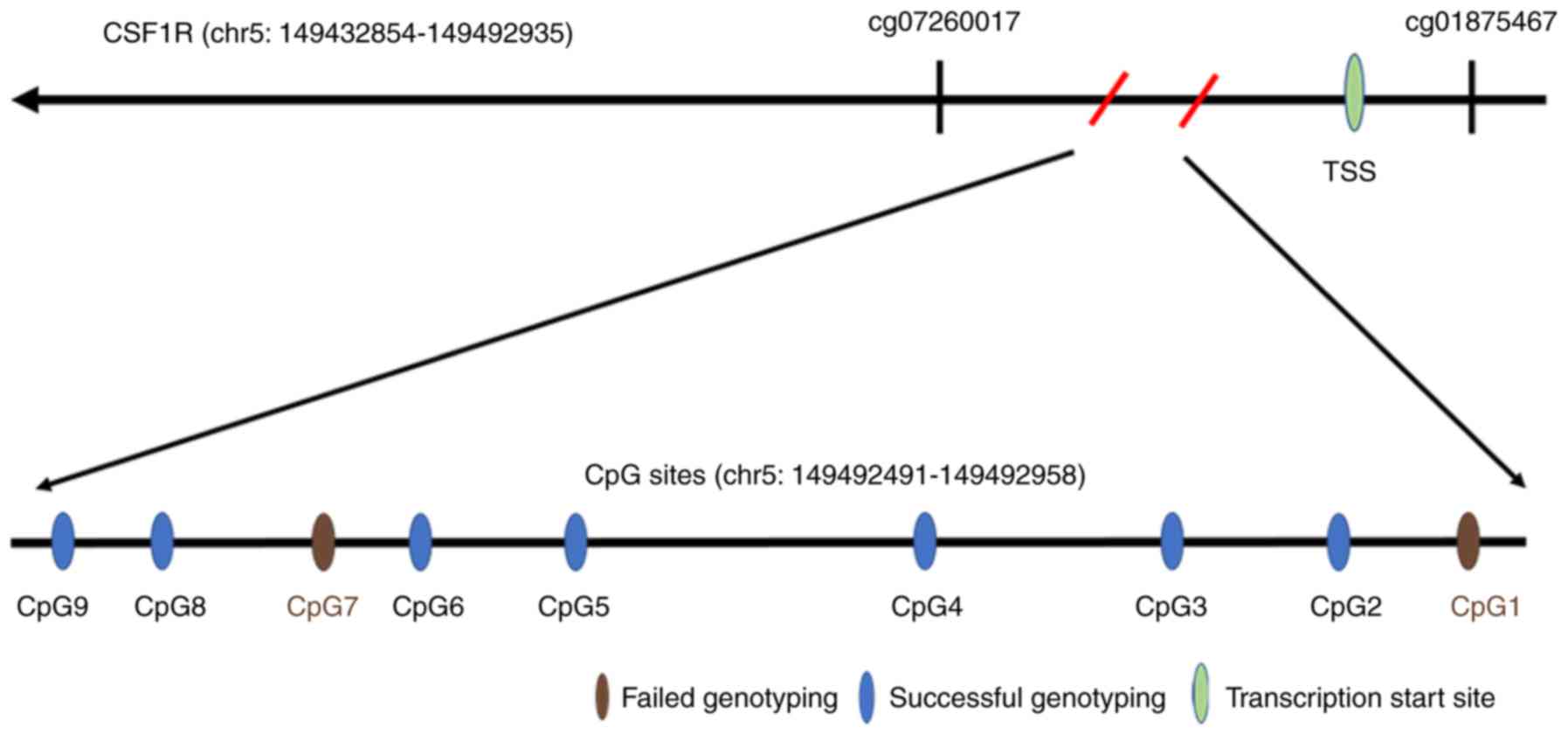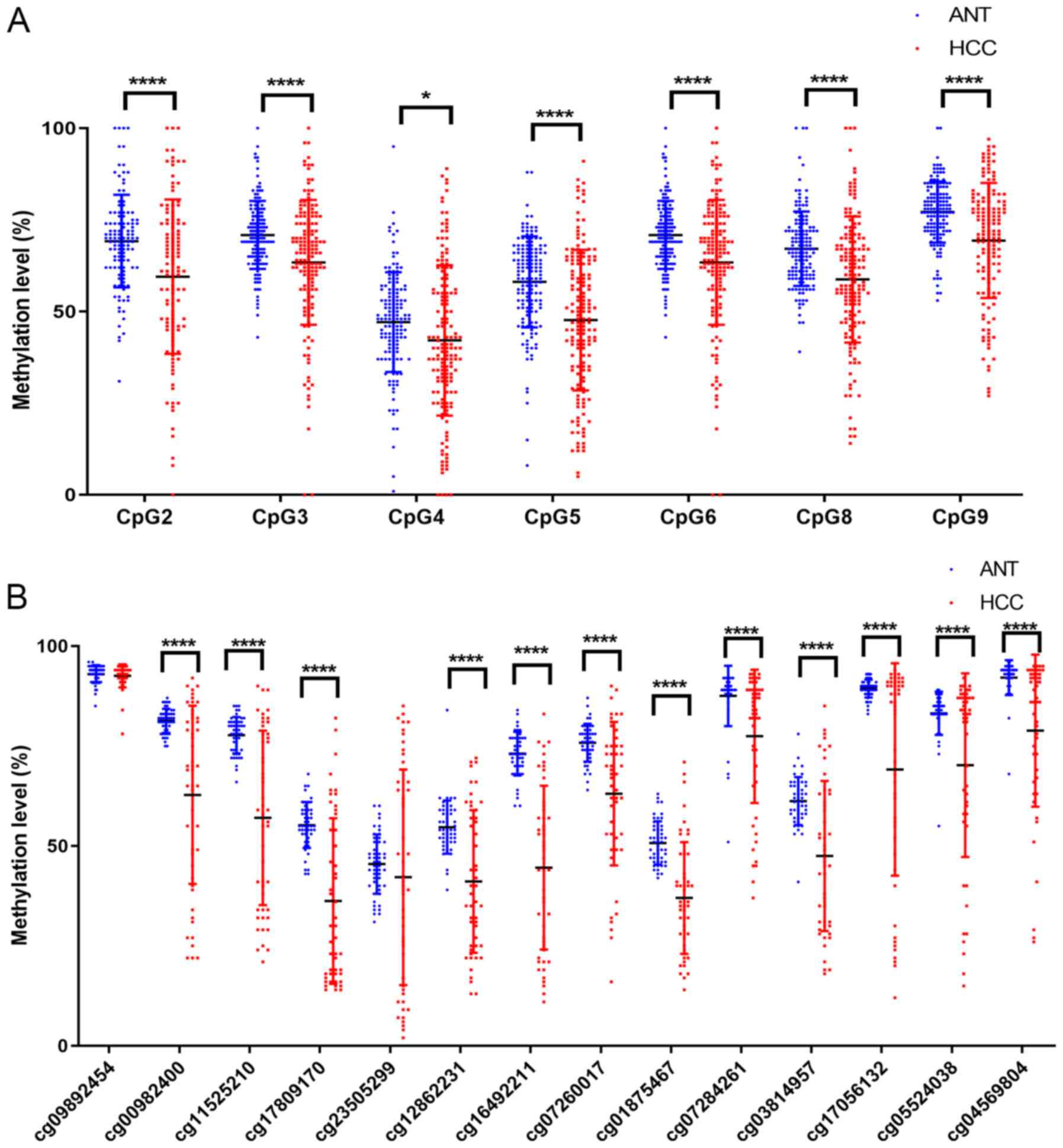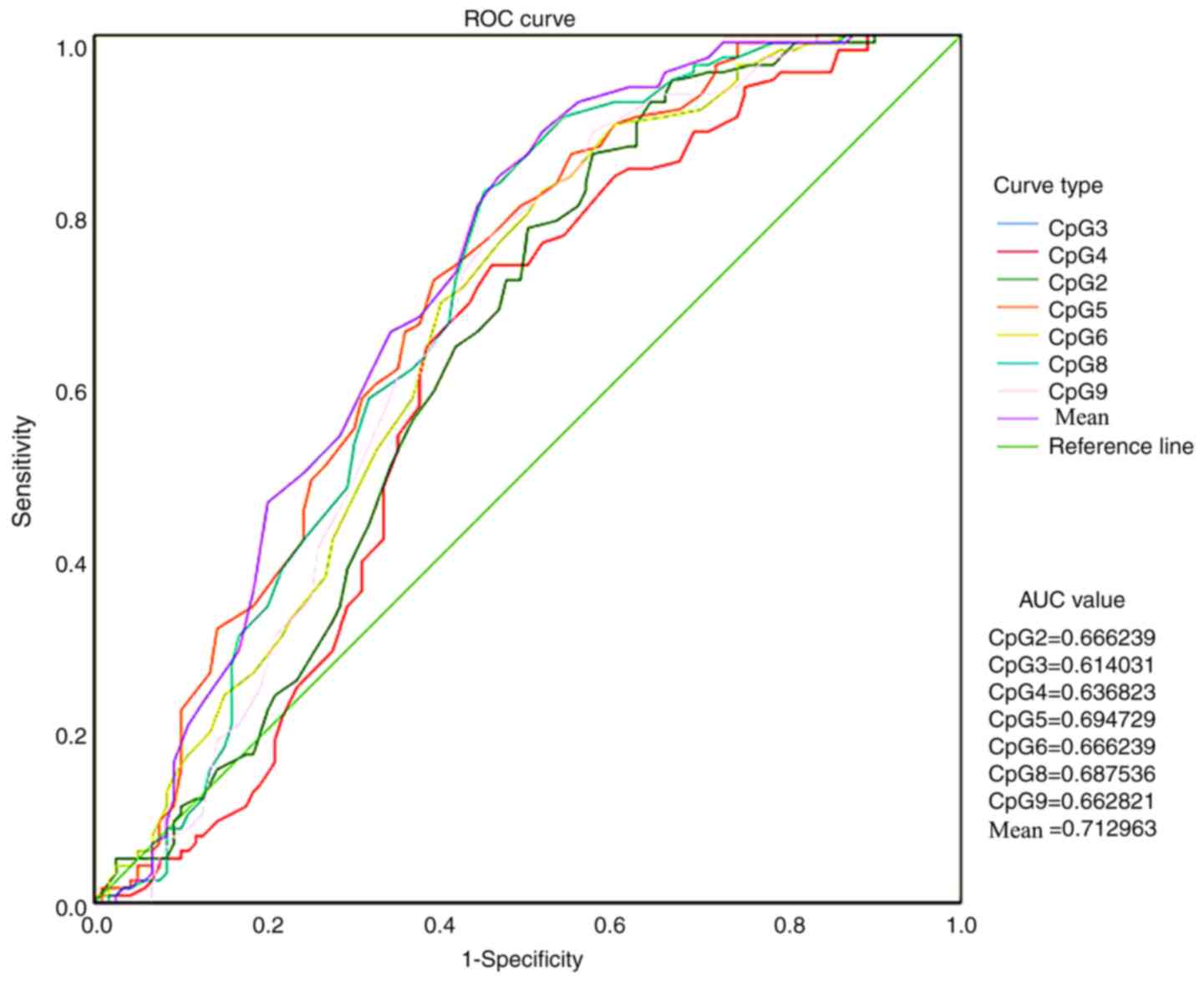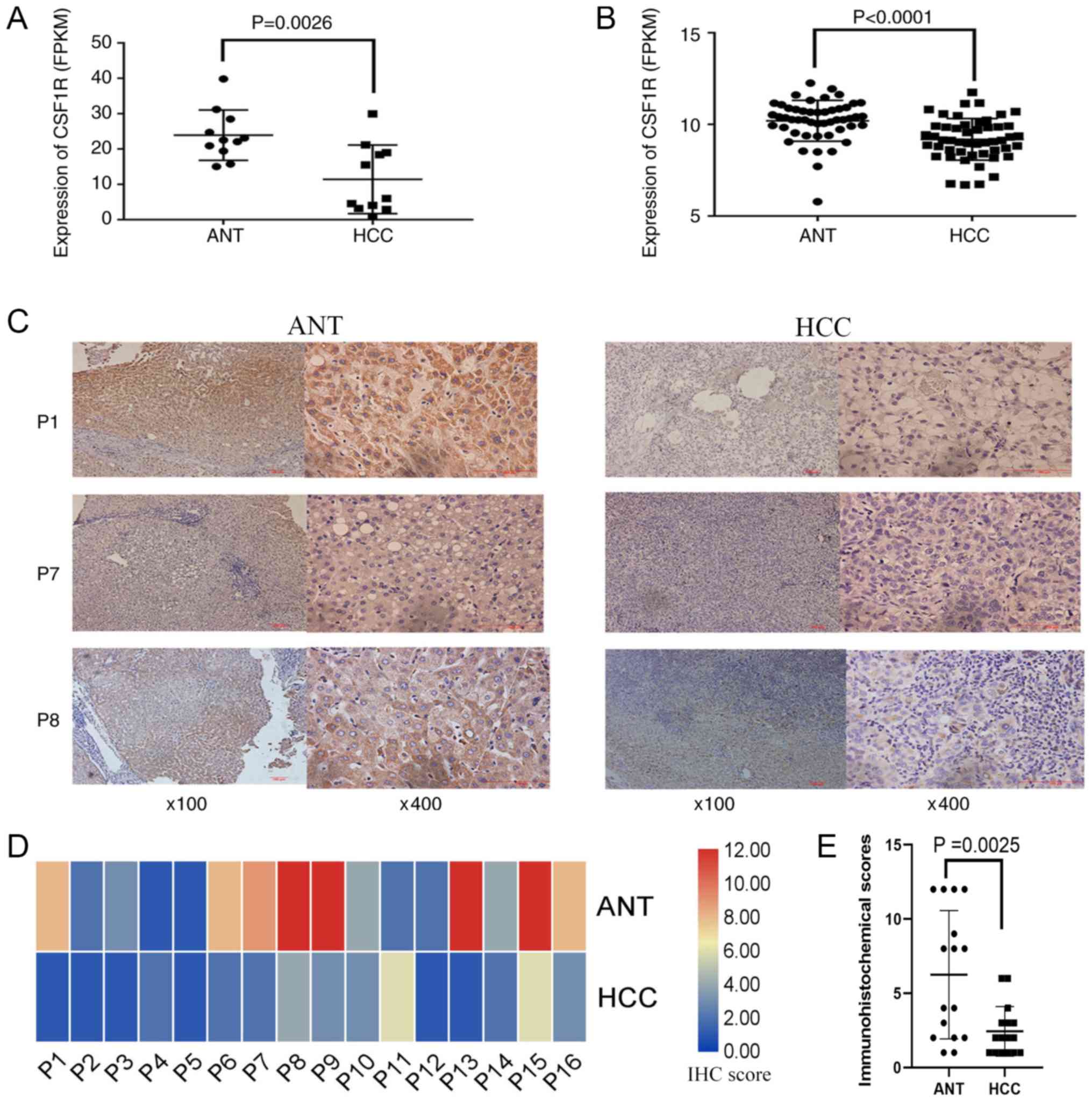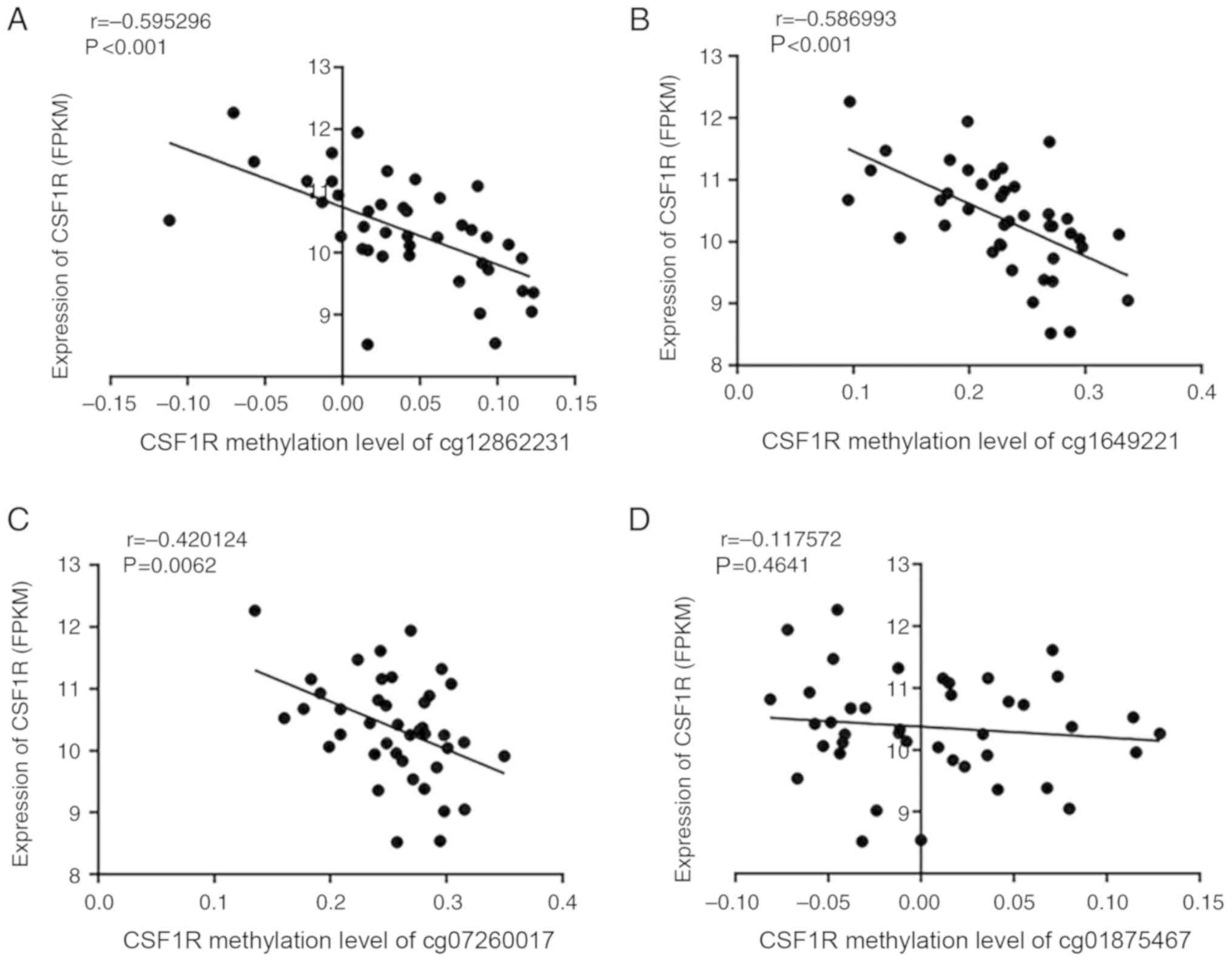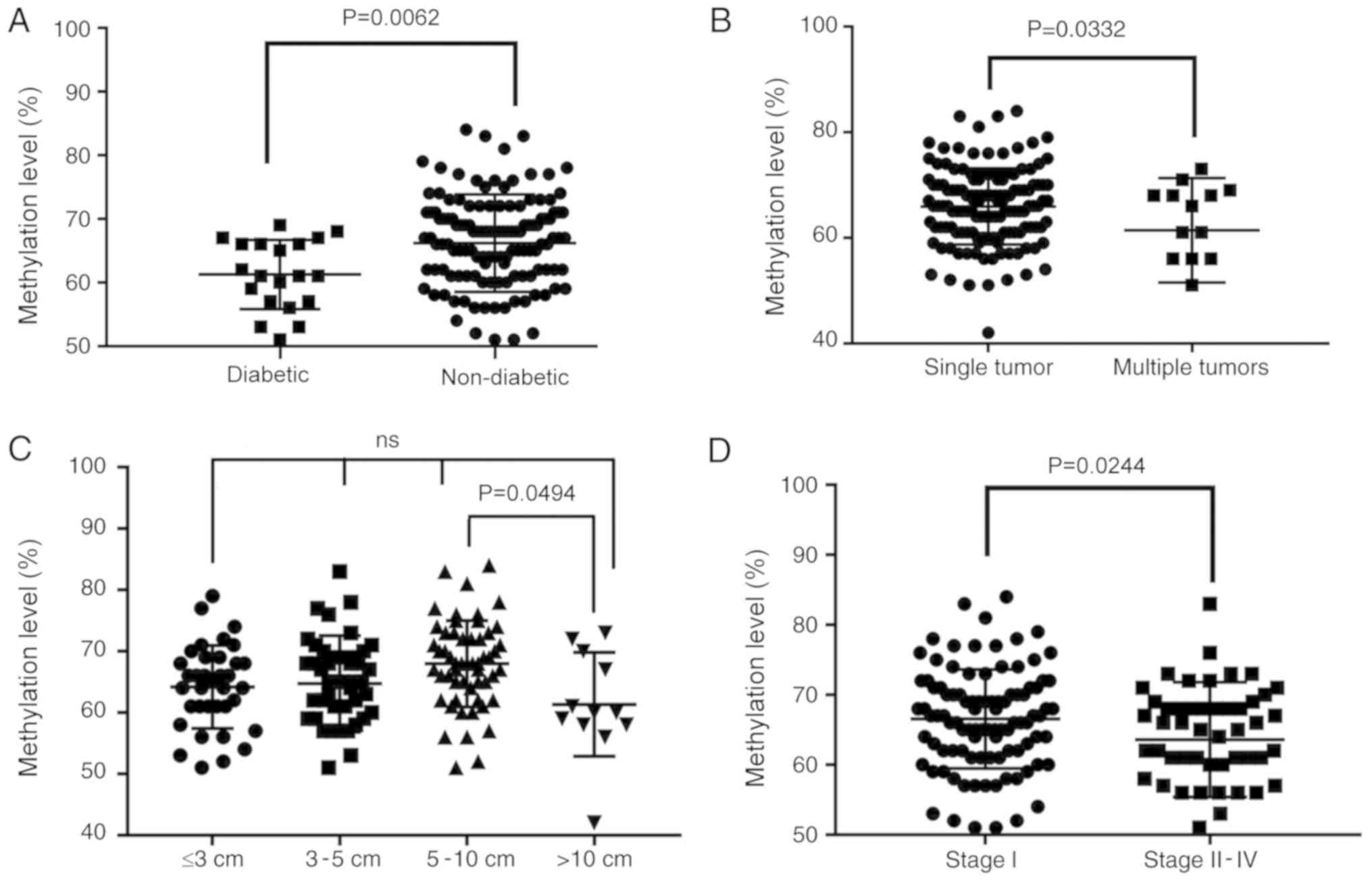|
1
|
Noy R and Pollard JW: Tumor-associated
macrophages: From mechanisms to therapy. Immunity. 41:49–61. 2014.
View Article : Google Scholar : PubMed/NCBI
|
|
2
|
Choi J, Gyamfi J, Jang H and Koo JS: The
role of tumor-associated macrophage in breast cancer biology.
Histol Histopathol. 33:133–145. 2018.PubMed/NCBI
|
|
3
|
Vilgelm AE and Richmond A: Chemokines
modulate immune surveillance in tumorigenesis, metastasis, and
response to immunotherapy. Front Immunol. 10:3332019. View Article : Google Scholar : PubMed/NCBI
|
|
4
|
Rhee I: Diverse macrophages polarization
in tumor microenvironment. Arch Pharm Res. 39:1588–1596. 2016.
View Article : Google Scholar : PubMed/NCBI
|
|
5
|
Yang L and Zhang Y: Tumor-associated
macrophages, potential targets for cancer treatment. Biomark Res.
5:252017. View Article : Google Scholar : PubMed/NCBI
|
|
6
|
Konno T, Kasanuki K, Ikeuchi T, Dickson DW
and Wszolek ZK: CSF1R-related leukoencephalopathy: A major player
in primary microgliopathies. Neurology. 91:1092–1104. 2018.
View Article : Google Scholar : PubMed/NCBI
|
|
7
|
Arcuri F, Buchwalder L, Toti P, Cintorino
M, Tosi P, Lockwood CJ, Rybalov B and Schatz F: Differential
regulation of colony stimulating factor 1 and macrophage migration
inhibitory factor expression by inflammatory cytokines in term
human decidua: Implications for macrophage trafficking at the
fetal-maternal interface. Biol Reprod. 76:433–439. 2007. View Article : Google Scholar : PubMed/NCBI
|
|
8
|
Richardsen E, Uglehus RD, Johnsen SH and
Busund LT: Macrophage-colony stimulating factor (CSF1) predicts
breast cancer progression and mortality. Anticancer Res.
35:865–874. 2015.PubMed/NCBI
|
|
9
|
Cannarile MA, Weisser M, Jacob W, Jegg AM,
Ries CH and Rüttinger D: Colony-stimulating factor 1 receptor
(CSF1R) inhibitors in cancer therapy. J Immunother Cancer.
5:532017. View Article : Google Scholar : PubMed/NCBI
|
|
10
|
Williams H, Brenner S and Venkatesh B:
Identification and analysis of additional copies of the
platelet-derived growth factor receptor and colony stimulating
factor 1 receptor genes in fugu. Gene. 295:255–264. 2002.
View Article : Google Scholar : PubMed/NCBI
|
|
11
|
Noda Y, Kawaguchi T, Korenaga M, Yoshio S,
Komukai S, Nakano M, Niizeki T, Koga H, Kawaguchi A, Kanto T and
Torimura T: High serum interleukin-34 level is a predictor of poor
prognosis in patients with non-viral hepatocellular carcinoma.
Hepatol Res. 49:1046–1053. 2019. View Article : Google Scholar : PubMed/NCBI
|
|
12
|
Galletti G, Caligaris-Cappio F and
Bertilaccio MT: B cells and macrophages pursue a common path toward
the development and progression of chronic lymphocytic leukemia.
Leukemia. 30:2293–2301. 2016. View Article : Google Scholar : PubMed/NCBI
|
|
13
|
Dammeijer F, Lievense LA, Kaijen-Lambers
ME, van Nimwegen M, Bezemer M, Hegmans JP, van Hall T, Hendriks RW
and Aerts JG: Depletion of tumor-associated macrophages with a
csf-1r kinase inhibitor enhances antitumor immunity and survival
induced by DC immunotherapy. Cancer Immunol Res. 5:535–546. 2017.
View Article : Google Scholar : PubMed/NCBI
|
|
14
|
Stanley ER and Chitu V: CSF-1 receptor
signaling in myeloid cells. Cold Spring Harb Perspect Biol. 6:2014.
View Article : Google Scholar : PubMed/NCBI
|
|
15
|
Xun Q, Wang Z, Hu X, Ding K and Lu X:
Small-molecule CSF1R inhibitors as anticancer agents. Curr Med
Chem. 2019.PubMed/NCBI
|
|
16
|
Zhu Y, Yang J, Xu D, Gao XM, Zhang Z, Hsu
JL, Li CW, Lim SO, Sheng YY, Zhang Y, et al: Disruption of
tumour-associated macrophage trafficking by the osteopontin-induced
colony-stimulating factor-1 signalling sensitises hepatocellular
carcinoma to anti-PD-L1 blockade. Gut. 68:1653–1666. 2019.
View Article : Google Scholar : PubMed/NCBI
|
|
17
|
Chen Y, Wen H, Zhou C, Su Q, Lin Y, Xie Y,
Huang Y, Qiu Q, Lin J, Huang X, et al: TNF-α derived from M2
tumor-associated macrophages promotes epithelial-mesenchymal
transition and cancer stemness through the Wnt/β-catenin pathway in
SMMC-7721 hepatocellular carcinoma cells. Exp Cell Res. 378:41–50.
2019. View Article : Google Scholar : PubMed/NCBI
|
|
18
|
Villanueva A, Portela A, Sayols S,
Battiston C, Hoshida Y, Méndez-González J, Imbeaud S, Letouzé E,
Hernandez-Gea V, Cornella H, et al: DNA methylation-based prognosis
and epidrivers in hepatocellular carcinoma. Hepatology.
61:1945–1956. 2015. View Article : Google Scholar : PubMed/NCBI
|
|
19
|
Shui IM, Wong CJ, Zhao S, Kolb S, Ebot EM,
Geybels MS, Rubicz R, Wright JL, Lin DW, Klotzle B, et al: Prostate
tumor DNA methylation is associated with cigarette smoking and
adverse prostate cancer outcomes. Cancer. 122:2168–2177. 2016.
View Article : Google Scholar : PubMed/NCBI
|
|
20
|
Johnson KC, Houseman EA, King JE and
Christensen BC: Normal breast tissue DNA methylation differences at
regulatory elements are associated with the cancer risk factor age.
Breast Cancer Res. 19:812017. View Article : Google Scholar : PubMed/NCBI
|
|
21
|
Bo H, Cao K, Tang R, Zhang H, Gong Z, Liu
Z, Liu J, Li J and Fan L: A network-based approach to identify DNA
methylation and its involved molecular pathways in testicular germ
cell tumors. J Cancer. 10:893–902. 2019. View Article : Google Scholar : PubMed/NCBI
|
|
22
|
Neubert NJ, Schmittnaegel M, Bordry N,
Nassiri S, Wald N, Martignier C, Tillé L, Homicsko K, Damsky W,
Maby-El Hajjami H, et al: T Cell-induced CSF1 promotes melanoma
resistance to PD1 blockade. Sci Transl Med. 10(pii): eaan33112018.
View Article : Google Scholar : PubMed/NCBI
|
|
23
|
Najib and Haboubi: Pathology and genetics:
Tumours of the digestive system. Stanley R Hamilton and Lauri A
Aaltonen: ISBN No.: 02-832-2410-8.
|
|
24
|
Edge SB and Compton CC: The American joint
committee on cancer: The 7th edition of the AJCC cancer staging
manual and the future of TNM. Ann Surg Oncol. 17:1471–1474. 2010.
View Article : Google Scholar : PubMed/NCBI
|
|
25
|
Zhang H, Ye J, Weng X, Liu F, He L, Zhou D
and Liu Y: Comparative transcriptome analysis reveals that the
extracellular matrix receptor interaction contributes to the venous
metastases of hepatocellular carcinoma. Cancer Genet. 208:482–491.
2015. View Article : Google Scholar : PubMed/NCBI
|
|
26
|
Tang L, Tan YX, Jiang BG, Pan YF, Li SX,
Yang GZ, Wang M, Wang Q, Zhang J, Zhou WP, et al: The prognostic
significance and therapeutic potential of hedgehog signaling in
intrahepatic cholangiocellular carcinoma. Clin Cancer Res.
19:2014–2024. 2013. View Article : Google Scholar : PubMed/NCBI
|
|
27
|
Chen C, Chen H, He Y and Xia RJB: TBtools,
a toolkit for biologists integrating various biological data
handling tools with a user-friendly interface. 289660. 2018.
|
|
28
|
Ahsan M, Ek WE, Rask-Andersen M, Karlsson
T, Lind-Thomsen A, Enroth S, Gyllensten U and Johansson Å: The
relative contribution of DNA methylation and genetic variants on
protein biomarkers for human diseases. PLoS Genet. 13:e10070052017.
View Article : Google Scholar : PubMed/NCBI
|
|
29
|
Cooper J and Giancotti FG: Integrin
signaling in cancer: Mechanotransduction, stemness, epithelial
plasticity, and therapeutic resistance. Cancer Cell. 35:347–367.
2019. View Article : Google Scholar : PubMed/NCBI
|
|
30
|
Puisieux A: Role of epithelial-mesenchymal
transition in tumor progression. Bull Acad Natl Med. 193:2017–2032;
discussion 2032–2014. 2009.(In French). PubMed/NCBI
|
|
31
|
Alvarez MA, Freitas JP, Mazher Hussain S
and Glazer ES: TGF-β inhibitors in metastatic pancreatic ductal
adenocarcinoma. J Gastrointest Cancer. 50:207–213. 2019. View Article : Google Scholar : PubMed/NCBI
|
|
32
|
Balkwill F and Mantovani A: Inflammation
and cancer: Back to Virchow? Lancet. 357:539–545. 2001. View Article : Google Scholar : PubMed/NCBI
|
|
33
|
Zitvogel L and Kroemer G: CD103+ dendritic
cells producing interleukin-12 in anticancer immunosurveillance.
Cancer Cell. 26:591–593. 2014. View Article : Google Scholar : PubMed/NCBI
|
|
34
|
Mantovani A, Ming WJ, Balotta C,
Abdeljalil B and Bottazzi B: Origin and regulation of
tumor-associated macrophages: The role of tumor-derived chemotactic
factor. Biochim Biophys Acta. 865:59–67. 1986.PubMed/NCBI
|
|
35
|
Papadopoulos KP, Gluck L, Martin LP,
Olszanski AJ, Tolcher AW, Ngarmchamnanrith G, Rasmussen E, Amore
BM, Nagorsen D, Hill JS and Stephenson J Jr: First-in-human study
of AMG 820, a monoclonal anti-colony-stimulating factor 1 receptor
antibody, in patients with advanced solid tumors. Clin Cancer Res.
23:5703–5710. 2017. View Article : Google Scholar : PubMed/NCBI
|
|
36
|
Paolino M and Penninger JM: The role of
TAM family receptors in immune cell function: Implications for
cancer therapy. Cancers (Basel). 8:2016. View Article : Google Scholar : PubMed/NCBI
|
|
37
|
Wang Q, Lu Y, Li R, Jiang Y, Zheng Y, Qian
J, Bi E, Zheng C, Hou J, Wang S and Yi Q: Therapeutic effects of
CSF1R-blocking antibodies in multiple myeloma. Leukemia.
32:176–183. 2018. View Article : Google Scholar : PubMed/NCBI
|
|
38
|
Ito K, Ishigamori R, Mutoh M, Ohta T, Imai
T and Takahashi M: Ay allele promotes azoxymethane-induced
colorectal carcinogenesis by macrophage migration in
hyperlipidemic/diabetic KK mice. Cancer Sci. 104:835–843. 2013.
View Article : Google Scholar : PubMed/NCBI
|
|
39
|
Rawla P, Sunkara T, Muralidharan P and Raj
JP: Update in global trends and aetiology of hepatocellular
carcinoma. Contemp Oncol (Pozn). 22:141–150. 2018.PubMed/NCBI
|
|
40
|
The Editors Of The Lancet Diabetes
Endocrinology, . Retraction and republication-Worldwide burden of
cancer attributable to diabetes and high body-mass index: A
comparative risk assessment. Lancet Diabetes Endocrinol. 6:4372018.
View Article : Google Scholar : PubMed/NCBI
|
|
41
|
Pearson-Stuttard J, Zhou B, Kontis V,
Bentham J, Gunter MJ and Ezzati M: Worldwide burden of cancer
attributable to diabetes and high body-mass index: A comparative
risk assessment. Lancet Diabetes Endocrinol. 6:95–104. 2018.
View Article : Google Scholar : PubMed/NCBI
|















